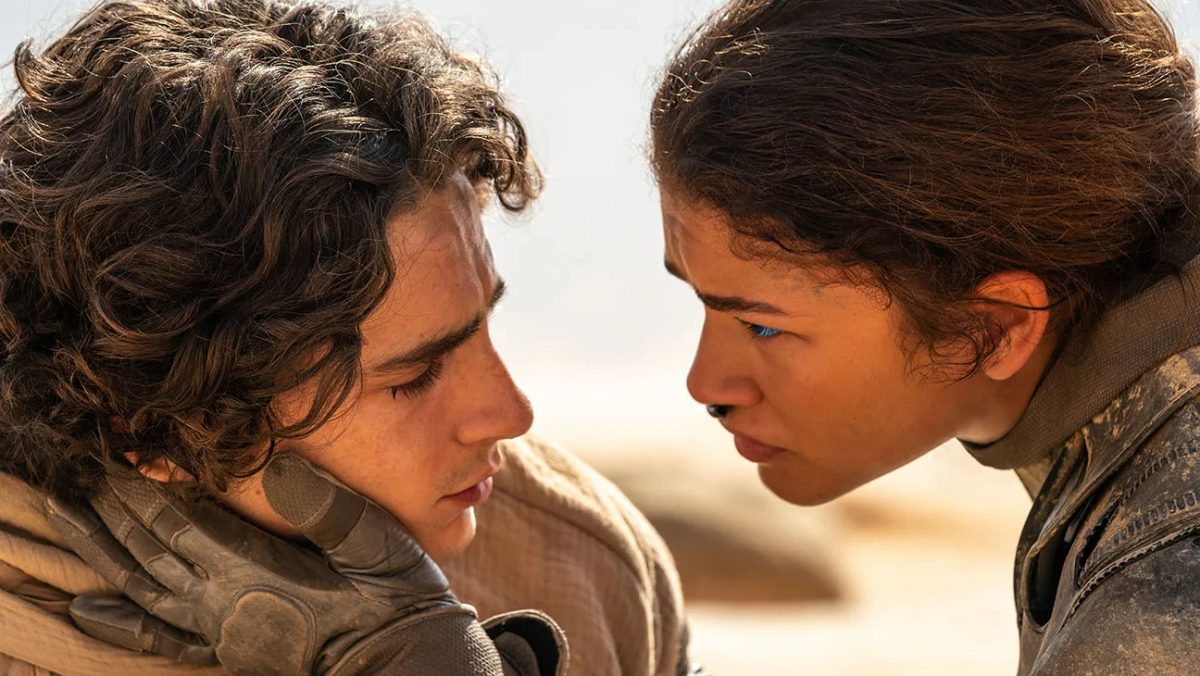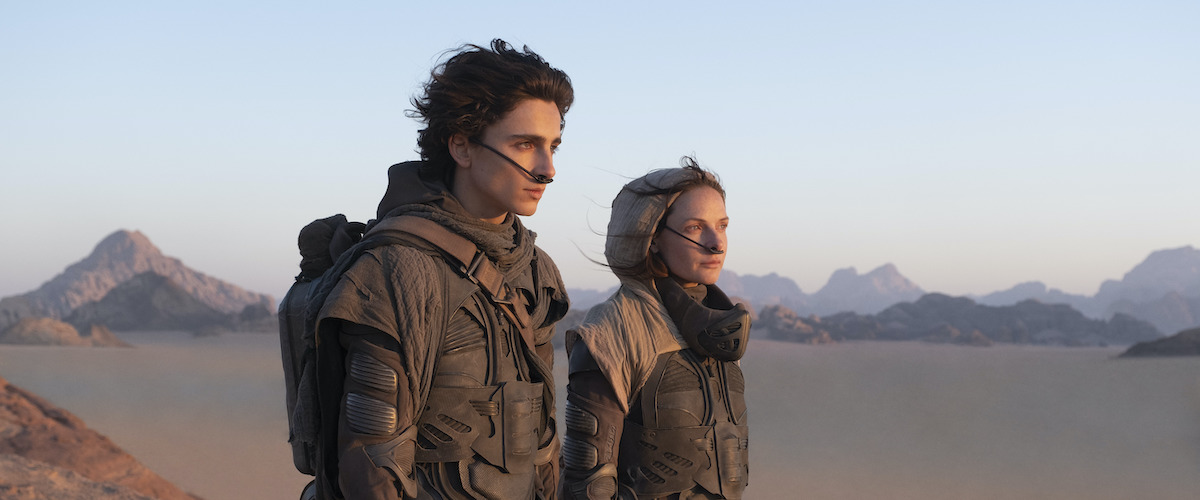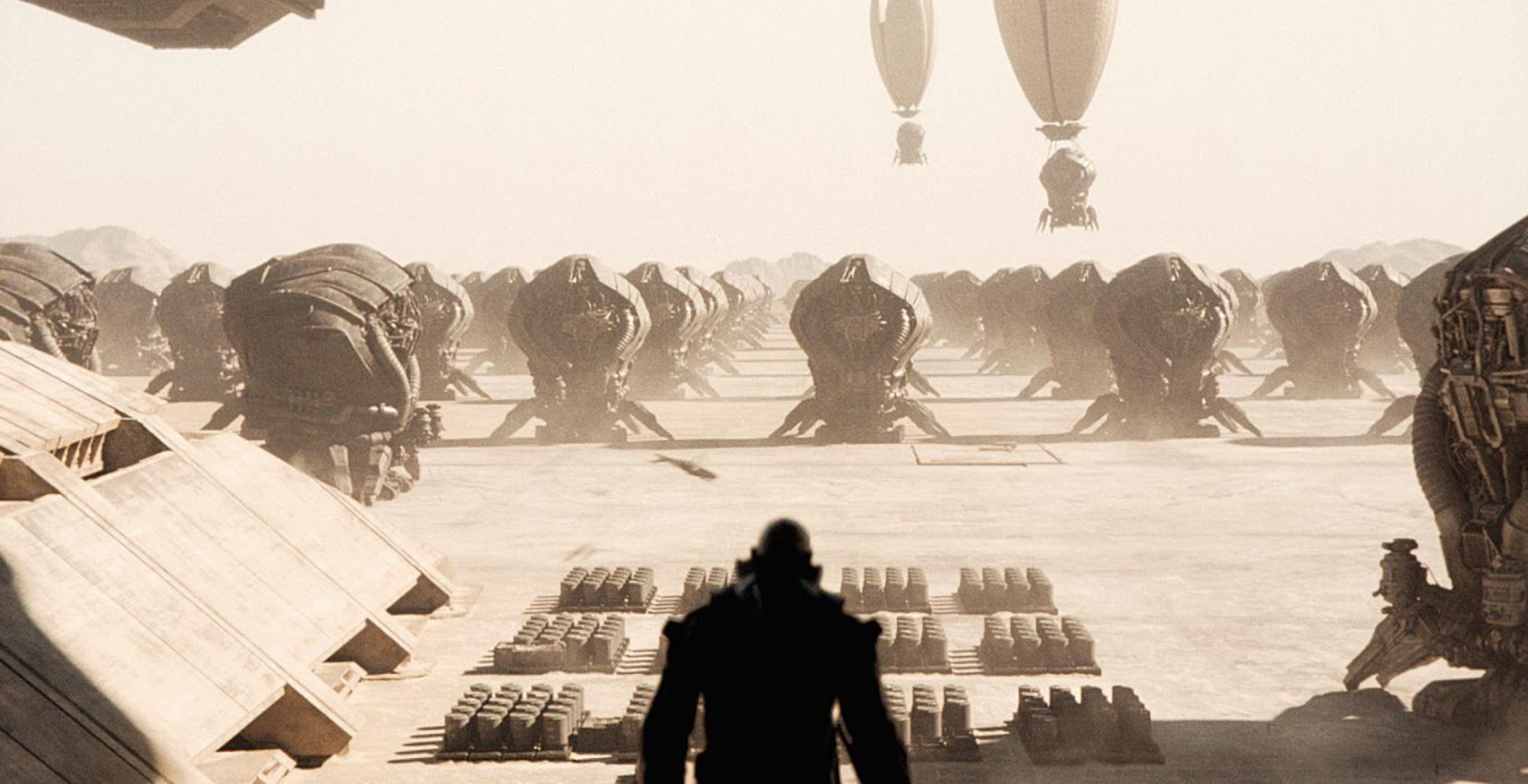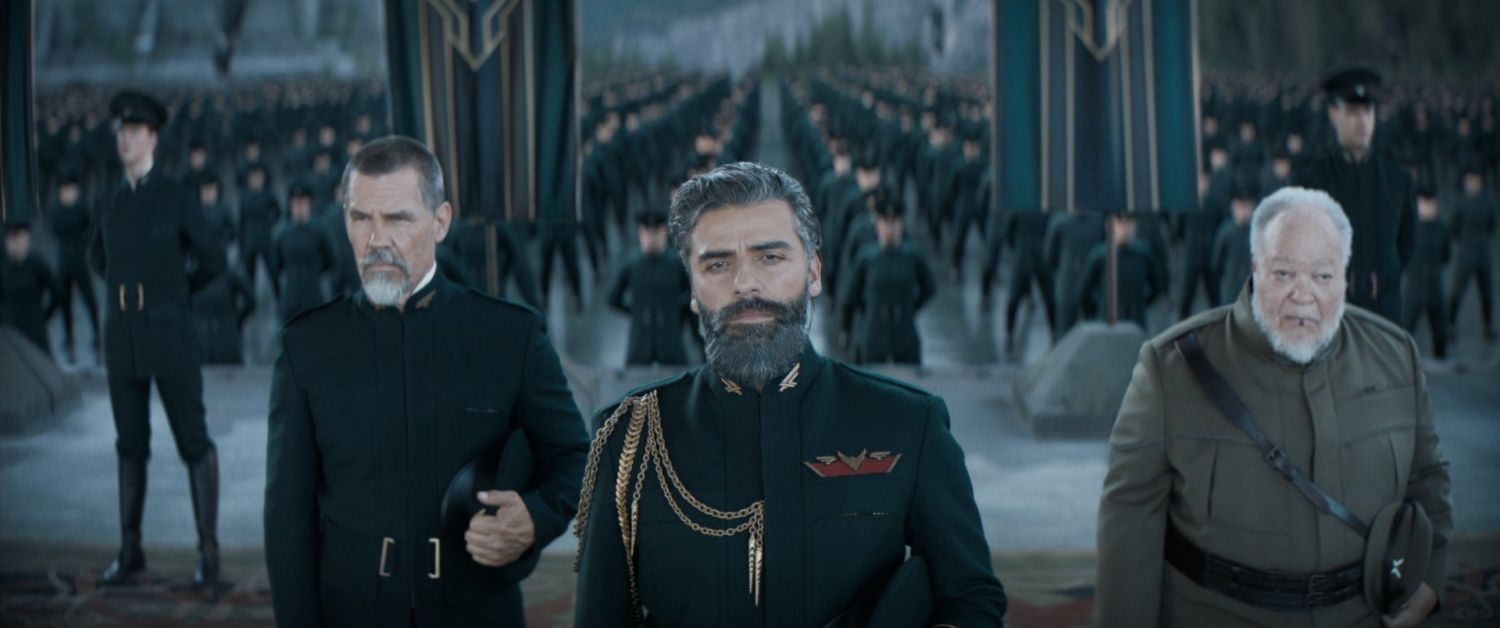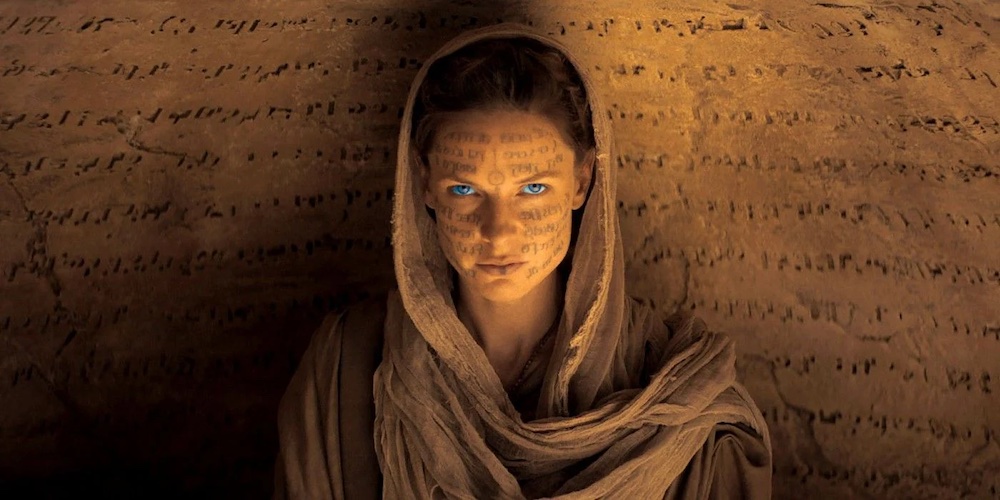When I recently rewatched David Lynch’s 1984 adaptation of Dune with filmmaker Mars McKay, we agreed that Lynch had omitted one of Frank Herbert’s most important themes. In Lynch’s version Paul Atreides, a nobleman from a decimated great house, is in hiding from his enemies on the desert planet of Aarakis. When he’s rescued by the nomadic Fremen, they discover that he is their prophesied messiah, and he leads them to victory over their Harkonnen oppressors, and in the process, they install him as emperor of the galaxy. It’s a standard Chosen One narrative, like King Arthur or Star Wars.
But in his 1965 novel, Frank Herbert makes it clear that the whole situation is a setup. Paul’s mother Lady Jessica is a Bene Gesserit, an all-female order of space witches who are the power behind the throne on hundreds of worlds. Over the course of centuries, the Bene Gesserit spread a belief in a coming messiah on many worlds, while they secretly manipulated dynasties in order to breed a psychic superbeing called the Kwisatz Haderach. When their demigod is finally born, he will have an army ready to serve him no matter where he goes.
Paul knows this, and wants no part of it. He has visions of billions of people killing and dying in his name, and tries desperately to avoid his fate. His victorious ascendence to the galactic throne is actually a defeat.
Denis Villeneuve understands that Paul’s interior conflict is central to the emotional impact of the story. The mounds of burning bodies from Paul’s visions are the most indelible image of Villeneuve’s 2021 Dune, and the creeping dread of jihad hangs over Dune: Part 2 like smoke from the funeral pyres.
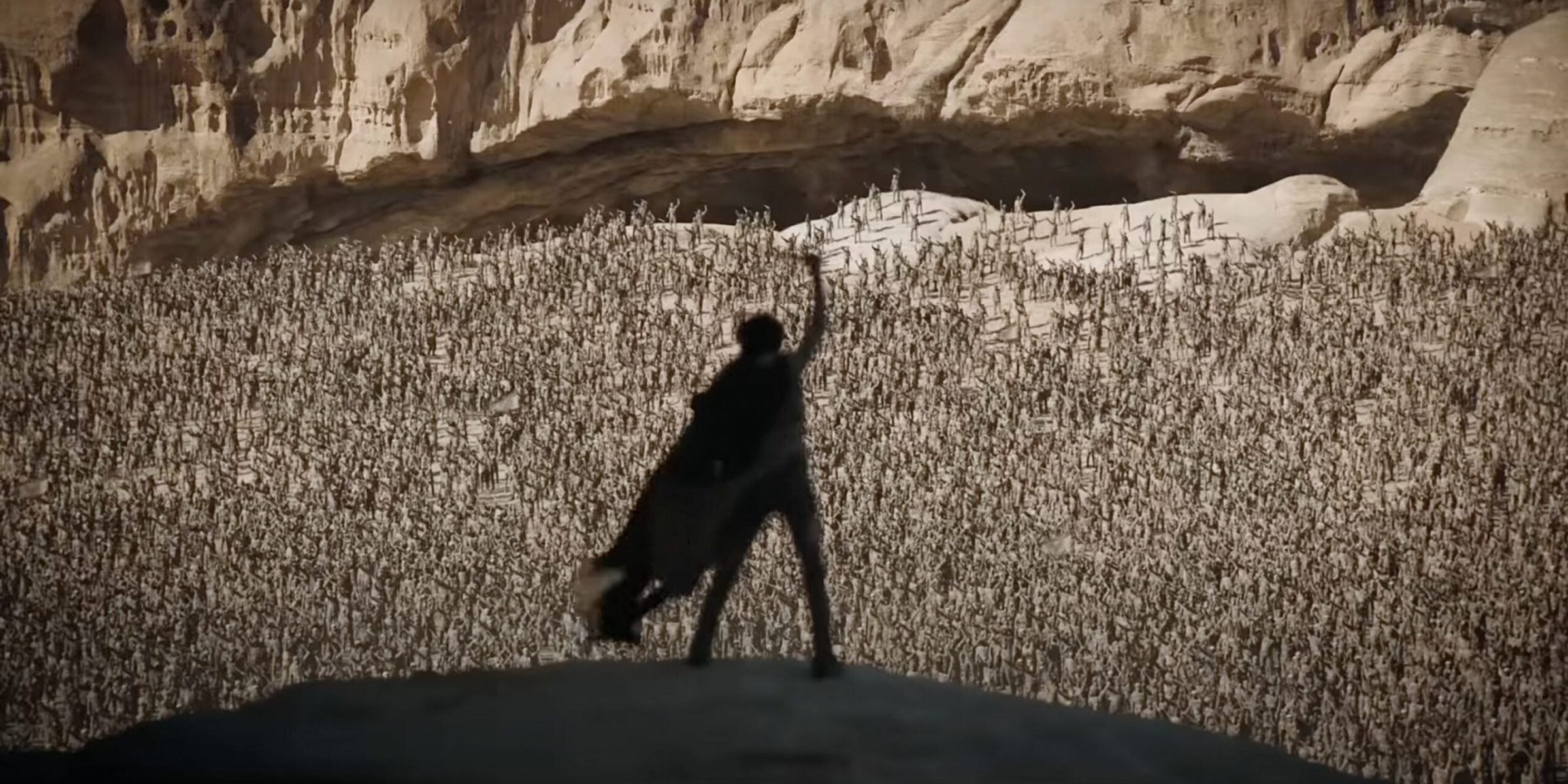
The first installment ended with Paul and Lady Jessica (Rebecca Ferguson) joining the Fremen tribe led by Stilgar (Javier Bardem). Part Two begins light years away in the palace of Emperor Shaddam IV (Christopher Walken), who is starting to think that helping House Harkonnen ambush House Atreides was a mistake. His daughter Princess Irulan (Florence Pugh) writes in her journal of rumors that Paul survived the massacre.
Meanwhile, on Arrakis, Stilgar’s band fights off Harkonnen attacks as they head for the relative safety of the deep desert. Paul’s guerrilla war in the desert — which Lynch’s version all but omits — provides some of the most thrilling sci-fi action in recent memory, even before Paul becomes Muad’Dib by riding a giant sandworm through the desert.
Bardem’s magnetic performance proves crucial. Stilgar steps in as a jovial father figure to the grieving Paul. But he’s also a Fremen fundamentalist who takes the prophecies seriously, and Lady Jessica makes sure he sees Paul as the “voice from outside” who will lead them to victory and make Dune green again. Chani (Zendaya), the beautiful warrior who takes a shine to Paul, sees the would-be Mahdi for what he is. “You want to control people? Tell them to wait for the messiah to come,” she spits.
Paul and Chani’s love story is heartrending. They cling to each other as the currents of history threaten to pull Paul away from his humanity. If they can kick the Harkonnen off the planet without calling millions of Fremen religious fundamentalists to jihad, maybe they could make a life together in the aftermath. But when Baron Harkonnen (Stellan Skarsgard) replaces Harkonnen commander “The Beast” Rabban (Dave Bautista) with his more competent cousin Feyd (Austin Butler), the Fremen are backed into a corner, and holy war becomes the only way out.
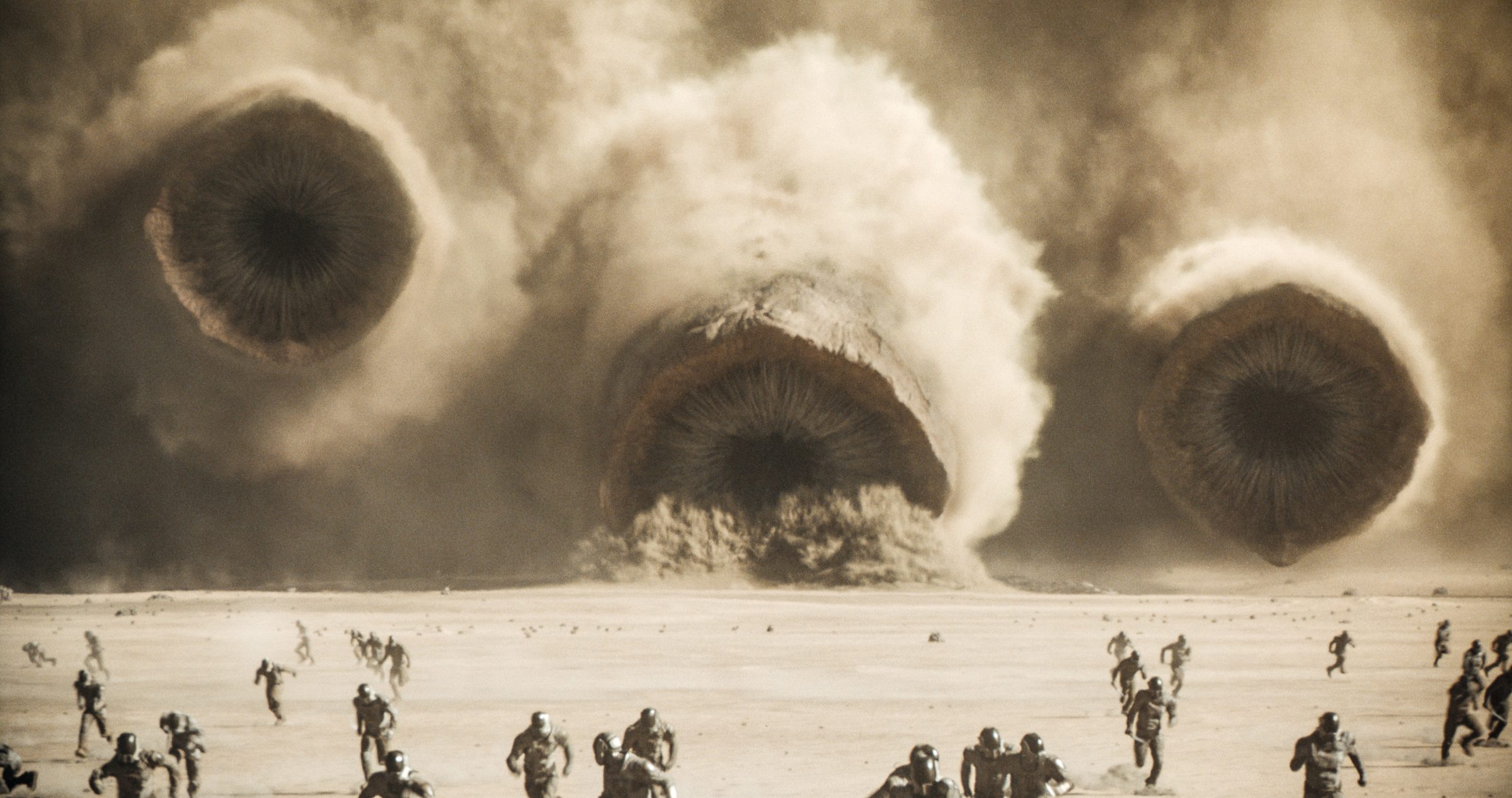
Dune is the product of Herbert’s very 1960s obsessions with religion, desert ecology, and psychedelic mushrooms. Nevertheless, it has only become more relevant over the 60 years since its first publication. One need not look far to find leaders cynically using religion for political gain, or sparking savage wars of extermination by appealing to ancient scripture. The clarity Villeneuve brings to this multilayered story is its own kind of miracle, and he’s able to do it without sacrificing the visceral action blockbuster cinema requires.
None of this heady stuff would mean much without the human element. From Dave Bautista’s petulant manchild Rabban to Josh Brolin’s crusty warrior Gurney, everyone in the sprawling cast delivers. Rebecca Ferguson is especially creepy as she whips believers into a frenzy while mumbling conversations with her unborn child.
But Zendaya and Chalamet are the beating heart of Dune: Part Two. It ain’t easy to draw real human emotions out of such fantastical material, but these two movie stars make it look like it is. Like Humphrey Bogart and Ingrid Bergman in Casablanca, they try to carve out a little solace in the midst of war, only to find out the problems of two little people ain’t worth a hill of beans in this crazy galaxy.
